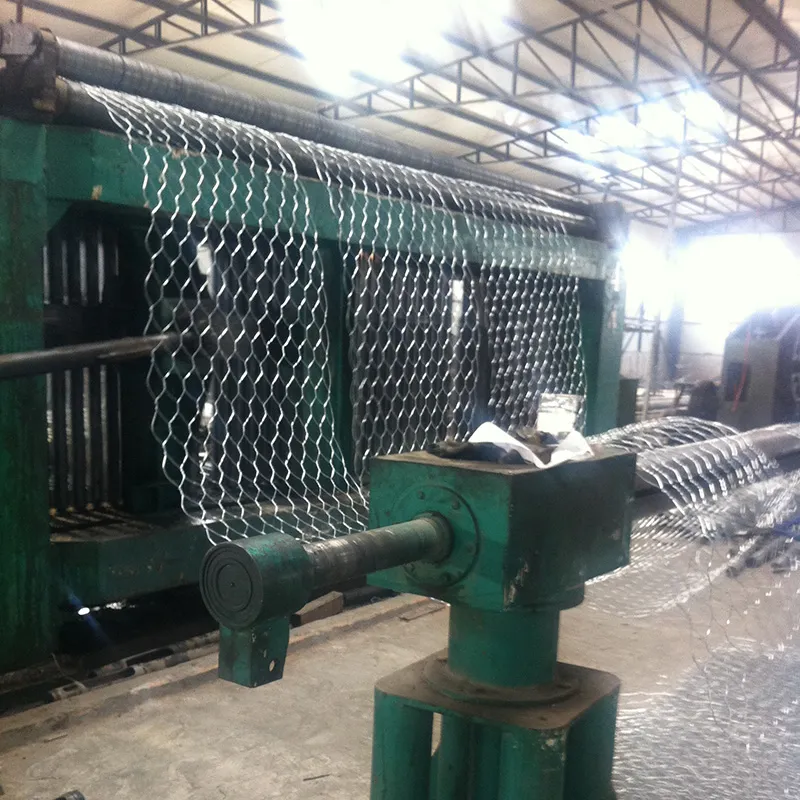-
+86 15030157877
-
sales@galvanizedmetalmesh.com
දෙසැ. . 24, 2024 11:00 Back to list
Perforated Metal Mesh Production Solutions for Various Applications and Industries
Understanding Perforated Mesh Factories An Insight into Production and Applications
Perforated mesh, a versatile material utilized in various industries, is a product of a specialized manufacturing process that involves the creation of holes or slits in a sheet of metal, plastic, or other materials. These holes serve multiple purposes, including ventilation, filtration, and aesthetic applications. The perforated mesh factory plays a crucial role in producing these items, meeting the diverse needs of clients across construction, automotive, food processing, and many other sectors.
The Manufacturing Process
The production of perforated mesh begins with the selection of raw materials. Common materials used include stainless steel, aluminum, and galvanized steel, which are chosen based on factors such as strength, durability, and corrosion resistance. Once the materials are selected, they undergo processes like cutting, blanking, and forming to create sheets of the desired size.
The heart of a perforated mesh factory lies in its specialized machinery, which is designed to efficiently create precise holes in the material. Punching machines are commonly used, where a punch and die system is employed to produce holes in a predetermined pattern. These machines can vary in complexity and capacity, from manual options suited for small-scale production to automated systems capable of handling large volumes efficiently.
After the perforation process, the sheets may undergo additional finishing processes, including deburring, coating, and bending. Deburring involves smoothing the edges of the holes to prevent sharp edges that could pose safety hazards. Coating, which may involve galvanization or powder coating, not only enhances the aesthetic appeal of the mesh but also adds to its corrosion resistance. Lastly, bending and shaping processes may be applied to create specific profiles or forms as required by the client.
Quality Control Measures
Quality control is a vital aspect of the operations in a perforated mesh factory. Manufacturers employ stringent quality assurance practices to ensure that the final products meet industry standards and customer specifications. This can involve the use of laser measuring tools, visual inspections, and adherence to established protocols that ensure consistency and reliability in the manufacturing process. Rigorous testing is also conducted to evaluate the strength, durability, and performance of the perforated mesh in various applications.
perforated mesh factory

Applications of Perforated Mesh
Perforated mesh serves a wide array of applications. In the construction industry, it is often used for façade cladding, screening, and railing systems, providing both functionality and aesthetic appeal. These panels allow for natural lighting and air circulation while reducing wind loads and enhancing the building's overall energy efficiency.
In the automotive sector, perforated mesh is utilized in acoustic applications, such as soundproofing interiors and optimizing airflow in engine compartments. Manufacturing and food processing industries also leverage these products for filtration and separation processes, ensuring the effective management of materials and contaminants.
Moreover, perforated mesh is favored in the design world for its beauty and versatility. Designers use it to create unique sculptures, decorative ceilings, and wall coverings, offering an innovative twist to interior and exterior spaces.
The Future of Perforated Mesh Production
As industries continue to evolve, the demand for perforated mesh is expected to grow. This will necessitate factories to not only enhance their production capabilities but also adopt sustainable manufacturing practices. Innovations in material technology and automated production systems are likely to drive efficiency, reduce waste, and lower costs. Furthermore, with the increasing emphasis on eco-friendly designs, factories will explore sustainable materials and energy-efficient processes to align with market demands.
In conclusion, perforated mesh factories are integral to numerous industries, providing essential products through innovative manufacturing processes. As demand continues to rise, the emphasis on quality, efficiency, and sustainability will shape the future of perforated mesh production, ensuring that it remains a valuable resource in various applications.
-
Hexagonal Gabion Mesh: Durable Stone Cages for Landscaping
NewsJul.22,2025
-
Premium Black Brick Welded Mesh - High Strength & Corrosion Resistant
NewsJul.21,2025
-
AI SEO Optimizer
NewsJul.20,2025
-
High-Quality Chicken Wire Panels Leading Manufacturer & Exporter
NewsJul.08,2025
-
High-Quality Concrete Reinforcement Wire Mesh – Reliable Steel Mesh Manufacturers & Exporters
NewsJul.08,2025
-
High-Quality Aluminum Expanded Mesh Leading Manufacturers & Exporters
NewsJul.08,2025



